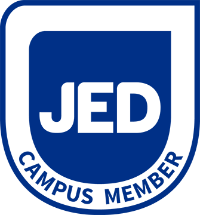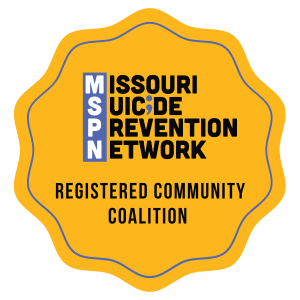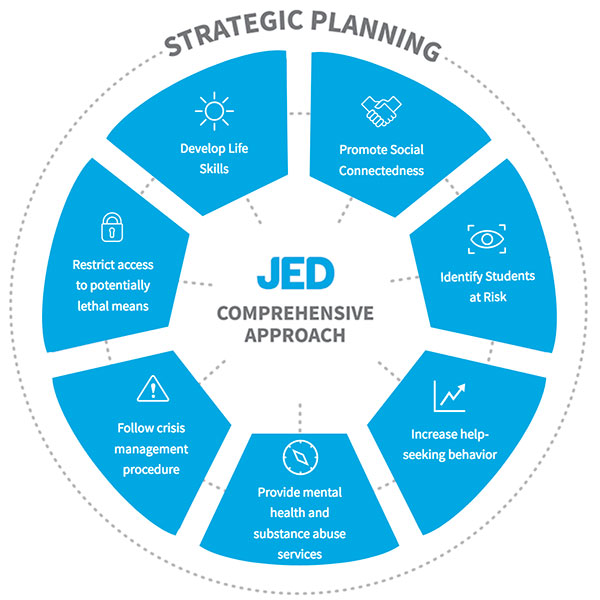Student Well-Being
JED Campus Health and Well-Being Committee

Missouri S&T recently completed its four-year partnership with JED Campus and is now an official member of the JED Campus Alumni Program, a network of over 250 schools. This does not mean, however, that the work is complete. The JED Health and Well-Being Committee, formed at the beginning of the JED project, will continue its efforts to support and improve the overall well-being and belonging on the Missouri S&T campus.
JED Campus is a nationwide initiative of The Jed Foundation (JED) designed to guide schools through a collaborative process of comprehensive systems, programs, and policy development with customized support to build upon existing mental well-being, substance abuse, and suicide prevention efforts. JED Campus schools embark on a strategic partnership with JED that assesses and enhances existing work and helps to create positive, lasting, systemic change in the campus community. As part of the process, each school establishes an interdisciplinary, campus-wide team to assess, support, and implement improvements.
Throughout our participation in the JED program, we:
- Collaborated with the JED Campus team to identify opportunities to enhance emotional health, substance use, and suicide prevention efforts and ensure that schools have the strongest possible mental health safety nets.
- Completed an in-depth, confidential survey at the beginning of the program, and then again after three years, to assess mental health promotion, substance use, and suicide prevention efforts.
- Participated in a full-day campus visit with JED Campus staff to generate goals for improvement and developed a strategic plan that serves as a roadmap over the course of the program. Accomplishments are outlined below.
- Received ongoing support from a dedicated Campus Advisor who provided consultation, guidance, and resources to help each school achieve its goals.
- Became members of a nationwide Learning Community – a network of JED Campus schools that share advice and experiences, access presentations and discussions on topics of interest, and have access to an in-depth, online resource li
 brary.
brary.
Our Health and Well-Being Committee is now recognized as a Missouri Suicide Prevention Community Coalition!
The S&T Health and Well-Being Committee champions student success by promoting well-being and belonging through collaboration, education, advocacy, and collective action. With this designation, the committee will be able to connect to state-level efforts, including tailored opportunities to network with other coalitions, and receive access to suicide prevention training opportunities and resources provided through MSPN and partners.

The JED Health and Well-Being Committee successfully completed many strategic plan items since the start of the project, in three phases. The accomplishments are outlined below.
Committee Chair
Jessica Gargus
Assistant Vice Chancellor for Student Health and Well-Being
Subcommittees and Members
JED Resources
Mental Health Resource Center
The Jed Foundation’s Mental Health Resource Center provides essential information about common emotional health issues and shows teens and young adults how they can support one another, overcome challenges, and make a successful transition to adulthood.
Higher Education Resources
Leaving home for the first time, living in a new city or state, and having to manage their own schedule may be a challenging experience for a student. In addition, they may struggle to make new friends and build the life skills they need to succeed. JED has developed programs and resources to help students have a healthy and positive college experience while preserving their mental health.

Follow Student Well-Being